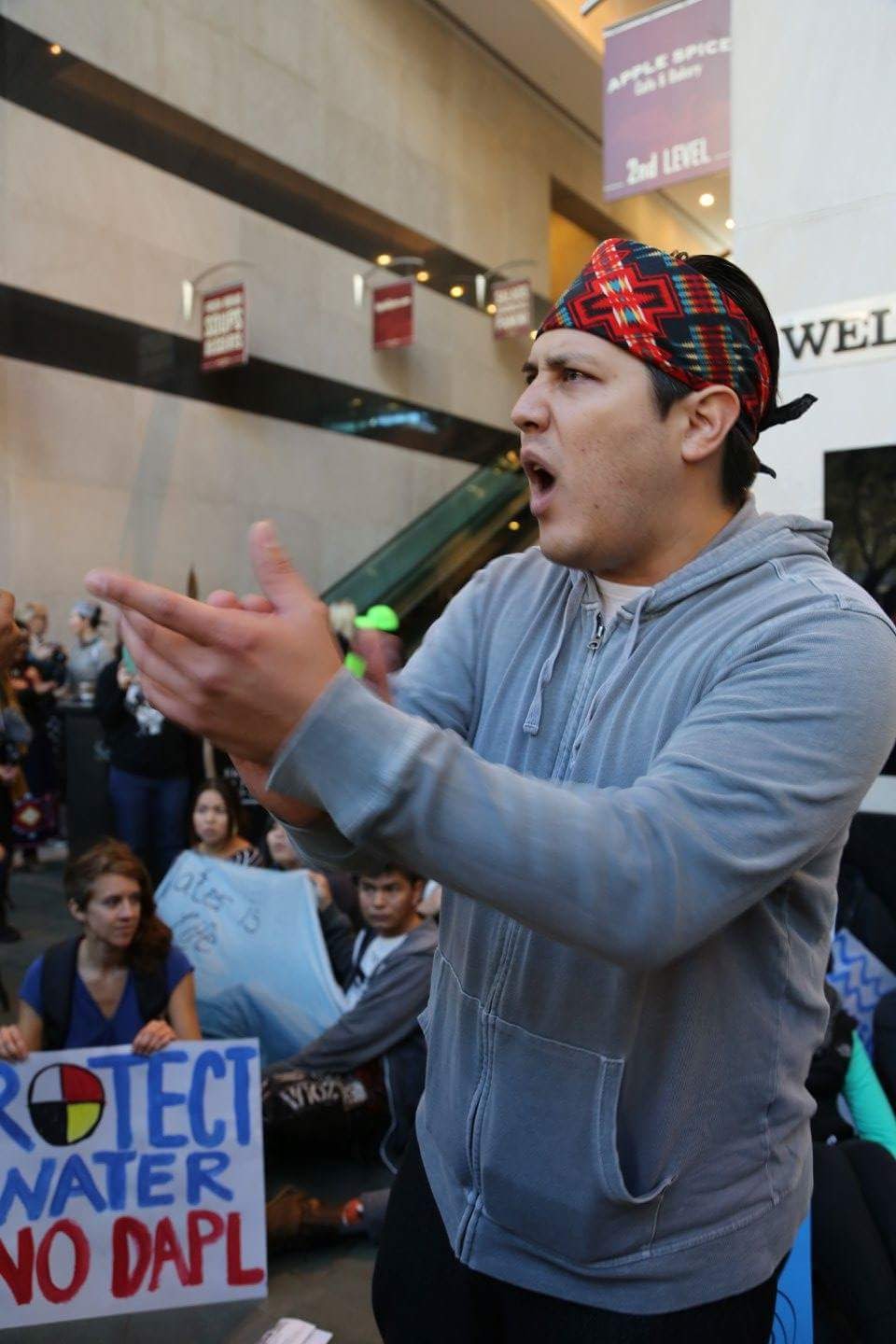
Navajo man James Singer barely managed to graduate from Kearns High School, but now he’s working on a Ph.D. dissertation at Utah State University and teaches at Westminister College and Salt Lake Community College. He’s married, is a proud new father of his 1-year-old daughter and makes hashtag jokes.
And he’s running as a Democrat for the U.S. Senate in 2018.
Singer, 34, is running against Sen. Orrin Hatch, R-Utah. Singer said he feels his education and ability to communicate social issues, such as Native American issues, makes him a strong challenger.
“I don’t come from a political background, so you don’t have to hate me right off the bat,” Singer said. “I’m aware because of my upbringing of a lot of different social problems that a lot of people aren’t because they come from positions of privilege.”
Singer grew up in Kearns, a suburb of Salt Lake City, with his parents, two younger sisters and a younger brother. His father is Navajo and Singer said he spent summers with relatives on the Navajo reservation in Cameron, Arizona, while he was growing up, living in a hogan, a traditional Navajo house with eight sides and a door facing east “to greet the sun.”
Singer said he has faced discrimination on both personal and systemic levels because of his Navajo background. He recounted a time when he, his sister and his father were driving back to Salt Lake City from Arizona. It was windy and Singer was driving when a policeman pulled them over. The police offer asked them where they were coming from.
“I said, ‘I’m coming from Chinle, down in the rez,’ and you could just tell, you know, the story concocting in his head,” Singer said. “And he goes, ‘Well how much have you had to drink?'”
Singer said when he told the officer he’d never had a drop of alcohol in his life, the officer told him he didn’t “believe that for a second.”
Singer said along with racial profiling, he’s also experienced racist comments and ignorance. He said people in Salt Lake City often think he’s Asian or Hispanic and ask where he or his parents are from, even after he has emphatically told them he’s from America.
Singer said he has been involved in political activism — especially when it comes to Native American issues — partly because of his background. Singer and four others founded the Utah League of Native American Voters in the fall of 2016 to give the Native American community a voice, according to cofounder and executive board member Carol Surveyor.
Surveyor first met Singer after she spoke at a rally defending Standing Rock, an Indian reservation in North and South Dakota made up of tribes who have protested against the construction of the Dakota Access Pipeline. Surveyor said she and Singer instantly “clicked.” She said she and Singer have similar ideas and he has become like a brother to her through the emotional support and friendship he provides her. Singer’s Navajo background contributes to his character, according to Surveyor.
“We (Navajos) have to be respectful to Mother Earth, we have to be respectful to all women, we have to be respectful to our elders, to our children, and I think he gets a lot of that teaching from his father,” Surveyor said.
Utah State University history professor Colleen O’Neill is part of Singer’s dissertation committee. She said Singer’s research had an impact on his activism.
“He took it to heart,” O’Neill said. “He said, ‘OK, well, we need money, we need new leadership, we need a real change.’ So he put his money where his mouth is. He decided to be one of those people that made the sacrifice, and I think running for office is a huge sacrifice.”
Singer said the moment he knew he would run for Senate was when he was giving a speech in Salt Lake City at a rally for Standing Rock. He said he realized he was heavily involved in the activist side of Native American issues, but there were not many Native American allies on the political side.
“You know, we’ve had old white men in long enough. We’ve had white men long enough and progressive white men, they need to step aside and let women and people of color occupy these positions of power. They need to stop thinking that they deserve it or that it’s something they’re entitled to,” Singer said.
Singer said his platform includes five parts: women’s rights and gender equality, environmental sustainability, Native American issues and tribal sovereignty, racial justice, and economic equality.
Singer said his sociology background heavily influences the way he approaches political issues. He said there’s a danger if problems like health care are not approached within a larger framework.
“We are born into a context. We’re not born into a static vacuum,” Singer said.
Although passionate about making change, Singer said after running for Senate, he is content to never run for office again because he loves teaching. Whether he wins or not, Singer hopes he can make a difference by running.
“If anything, this will be an opportunity to bring the most forgotten stories and issues to the forefront,” Singer said.




